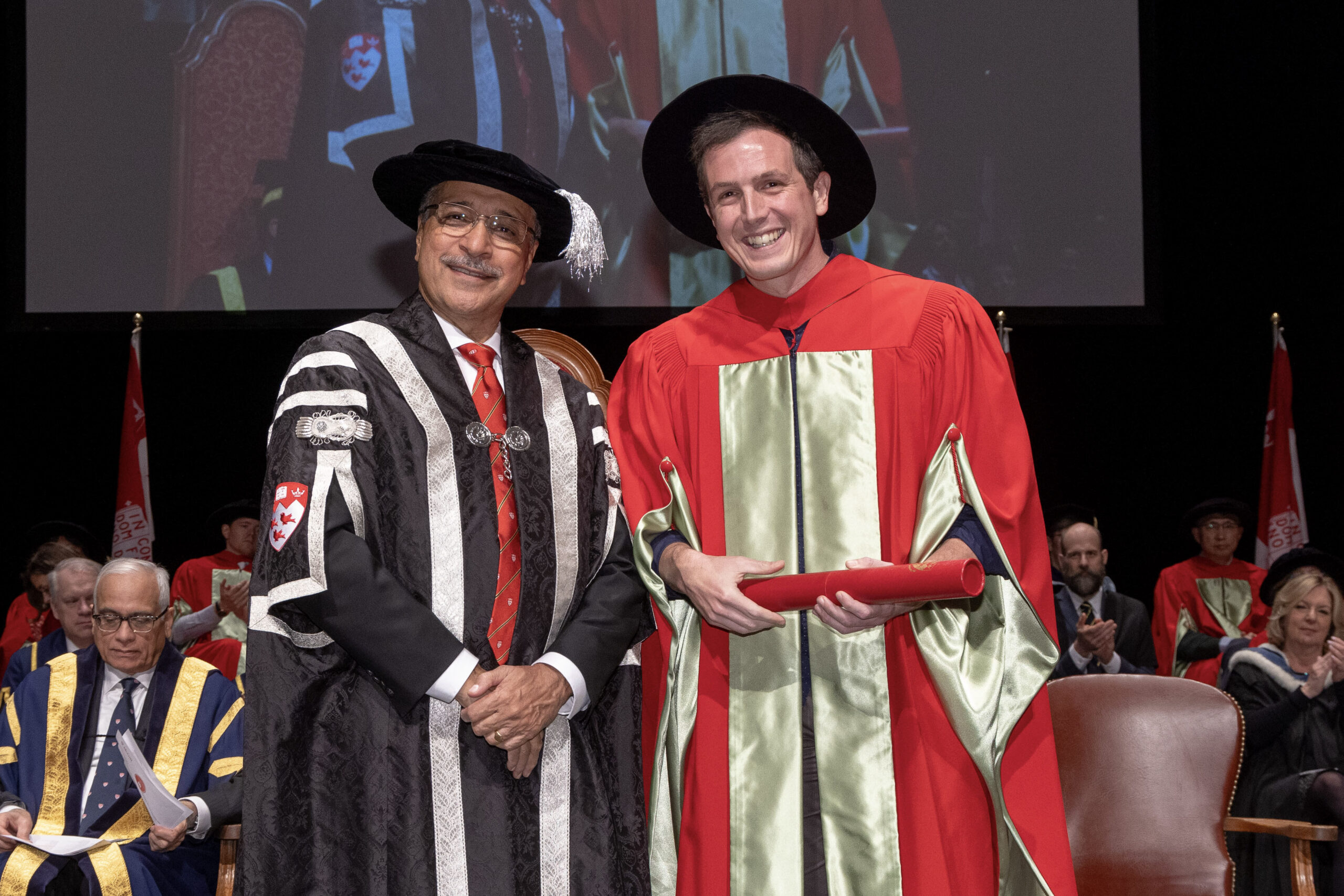
Growing up in Massachusetts and doing undergrad studies and his first Master’s degree at Middlebury College in Vermont, Alexander Manshel, Assistant Professor of English, didn’t have to travel far to get to McGill.
Except he did.
“I was a passionate student of literature and cultural history at that time, but I was also very interested in teaching,” said Manshel, who was awarded a Principal’s Prize for Excellence Teaching, in the Assistant Professor category, as part of Fall 2023 Convocation ceremonies on November 20.
After Middlebury, “I taught at a boarding school in Massachusetts and I sort of said to myself, “ ‘Gosh, I’ve lived in New England for the first 23 years of my life; it’s time to do something different.’ And I was lucky enough to get a faculty position at this fabulous international school in Hong Kong and ended up all the way across the world and teaching there for a few years, before coming back to do my PhD in English at Stanford.
“When I saw the position come up at McGill, a university I had long admired from just across the border, it was kind of a no-brainer to apply and keep my fingers crossed very tightly.”
He arrived at McGill in 2019 to teach contemporary American Literature, “six glorious months before the pandemic hit” and everyone went inside and online.
“I kind of feel like just now am I starting to know the place more deeply,” Manshel, 36, says. He has had time to settle into the Mile End/Outremont area and get engaged to a Montréalaise.
Always learning
What does he like most about his job? Still being a student.
“I study contemporary American literature. And there are somewhere between 50,000 and 100,000 new novels published in that field every year. What I get to do is sort through it with my colleagues in the field and my students and try to pluck out the works that are the most aesthetically interesting, most beautiful, most fascinating or representative of that larger group – and the outliers, the least representative.
“It really is changing all the time and it allows me to be a student of my field – always.”
How is literature changing? Manshel has just published a book on that, titled Writing Backwards, in which he observes a tremendous proliferation of stories devoted to the historical past – on the Second World War, the Holocaust, slavery, tales of immigration.
“Historical fiction is central to what we talk about when we talk about literary fiction today,” he said. “And what I found in my research was that in writers of colour – who are finally being recognized and celebrated and canonized in earnest – the imperative to write about the historical past is even more pronounced.” About 90 per cent of the writers of colour who have been shortlisted for major U.S. literary prizes are writing about the recent past, historical fiction, he added.
“Writers are also starting to reckon with digital technologies mediating our everyday life and the climate crisis disrupting our everyday life.”
Impact of AI
At his point, Manshel has anticipated just about every question an interviewer has and just did it again. What effect is Artificial Intelligence having on teaching?
“We’re taking it very seriously, talking about it a lot,” he said. “I think it is a tremendous opportunity to draw attention to the things we’re already doing. For a student to use AI as a tool to assist in their writing means they need to be able to identify what it is they’re trying to accomplish with their writing, and be able to ascertain whether the digital tools have helped them achieve that or have just muddied the waters.
“I’m keen to be able explore what it can do, but our fabulous students in the English department will be the first to show us what it can’t do, and how far beyond it they can already go.
“I think our students are a lot more nuanced in their thinking than simply, ‘this changes everything.’ “
If his students, judging by his award and the Rate My Prof website, are full of praise for their prof, he’s full of admiration for them, and deeply honoured by his prize.
“Students at McGill are the finest, most impressive I’ve ever taught,” Manshel said, adding he works in a department “that cares very deeply about their teaching, and to be recognized is something really special.”
